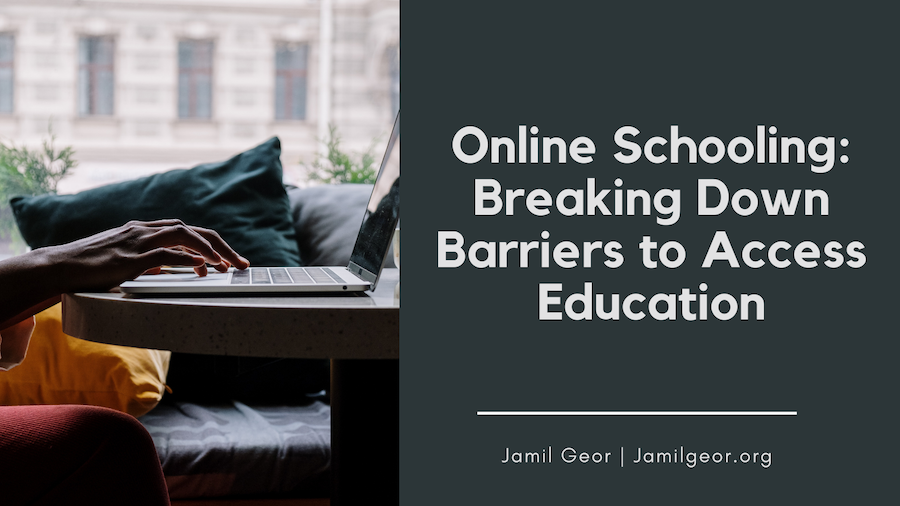The traditional way of learning of physical classrooms, has been challenged by the Covid-19 pandemic. In response, schools and universities worldwide have quickly shifted to online schooling to ensure continuity of learning. While online education has its challenges, it has also helped to break down some barriers to accessing education.
A barrier to accessing education is geography. Access to quality education can be limited for students living in rural or remote areas. Online schooling eliminates the need for students to be physically present in a classroom, which means they can access education from anywhere with an internet connection. This allows students in remote areas to attend school and access quality education without having to relocate or travel long distances.
Another barrier to accessing education is cost. Traditional schooling requires a lot of resources, such as school buildings, teachers, textbooks, and supplies. Online schooling, on the other hand, requires less infrastructure and can be more cost-effective. This can reduce the financial burden on families struggling to afford the cost of traditional schooling.
Online schooling also provides flexibility, which can help to break down barriers to accessing education. For example, students who need to work to support themselves or their families can attend school and work simultaneously. Online schooling allows students to create a schedule that works for them, making balancing their education with other responsibilities easier.
However, some challenges to online schooling must be addressed. One challenge is the need for more social interaction. Traditional schooling provides students with opportunities to interact with their peers and build relationships, which can be challenging to replicate online. Online schooling also requires a lot of self-discipline and motivation, which can be challenging for some students.
Online schooling has helped break down some barriers to accessing education, such as geography and cost. It provides flexibility and allows students to attend school from anywhere with an internet connection. However, online schooling also has challenges, such as the need for more social interaction and the need for self-discipline and motivation. As schools continue to adopt online schooling, it is vital to address these challenges and ensure that all students have access to quality education, regardless of location or financial situation.

